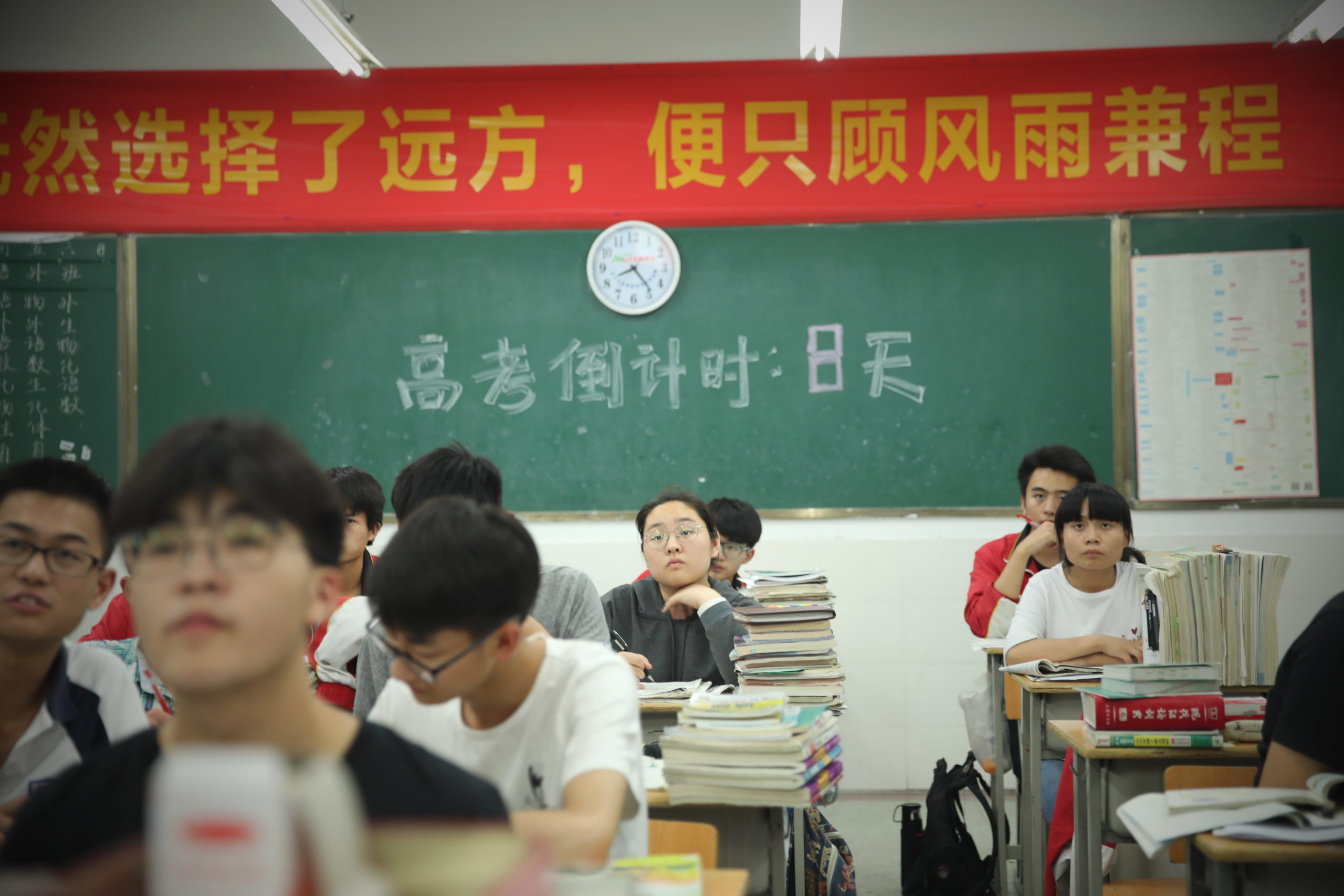Chinese students of Fuyang No.5 Middle School study in a classroom at night for upcoming National College Entrance Examination (Gaokao) on May 29, 2018 in Fuyang, China.
Vida Ĉina Grupo | Getty Images
As local governments in China delay the re-opening of schools to limit the spread of the new virus, parents and institutions are turning to online education, putting pressure on industry players to deliver.
Online classes accounted for less than 10% of revenue since Beijing-based after-school operator Zhuoyue Youcai Education Technology launched its digital program two years ago, said Lü Fei, department headmaster, according to a CNBC translation of his Mandarin-language remarks.
Now, it’s the only way for the company to generate cash.
All of the company’s classes have moved online even though they charge less than offline courses — but that would also cut their usual income by about 40%, Lü Fei said. “It’s just a choice between zero and something.”
Longer term, this could make online tutoring more acceptable to once hesitant parents and potentially contribute longer term to online tutoring penetration in China, in our view.
Alex Liu and Don Lau
analysts, China Renaissance
China’s roughly 276 million school children were heading into the month-long Lunar New Year school break when the new coronavirus hit. The disease has killed more than 2,000 people in China, and infected tens of thousands, prompting many provinces to delay the resumption of the school year for weeks.
However, a society that prizes good education is not going to let a virus stop their children from learning.
Some parents have signed up for online classes because they are afraid their children won’t be able to keep up with their peers when schools re-open. Many provinces and schools have also requested that children tune into online courses during this time. In many areas, local governments have banned offline institutions from operating in an effort to limit the spread of the virus.
“Longer term, this could make online tutoring more acceptable to once hesitant parents and potentially contribute longer term to online tutoring penetration in China, in our view,” China Renaissance analysts Alex Liu and Don Lau said in a Feb. 3 report.
Software engineers at 17EdTech, which sells products and services to public school systems for online education, have been working day and night since Jan. 23 to deal with overwhelming demand and maintain availability of its online products, spokesperson Lü Tao said last week.
“Obviously, almost all online schools would see a rise of enrollment during the outbreak, although there is no public data available yet,” Lü Tao said, according to a CNBC translation of her Mandarin-language remarks.
Konkurenciva merkato
Big, established players in China’s education market are trying to make the most of the trend in what can be a highly competitive market.
After-school tutoring company TAL Education, which operates online and offline courses, claims more than 2.3 million student enrollments in the quarter ended Nov. 30.
In its race to grab market share in online education, the company has built up an artificial intelligence research lab, and spent heavily on promotional campaigns for its online school Xueersi. Last summer, campaign spending alone likely topped 1 billion yuan ($143 million), according to Chinese media reports.
When asked about the figure, TAL referred CNBC to its financial reports. Since the virus hit, the company has stepped up its advertising for the online school on China’s Twitter-like Weibo platform and other Chinese social media.
Shares of the U.S.-listed company are up more than 20% for the year so far. Those of competitor New Oriental Education have climbed more than 14% over the same time period, while shares of New Oriental’s Hong Kong-listed online education subsidiary Koolearn have surged about 75% for the year so far through midday Wednesday.
Tough times for offline education
It’s too early to tell what the long-term impact will be for the online education industry.
Most of the companies are offering basic kindergarten to 12th grade classes for free during this time period. They hope these users can become paying customers after the virus subsides, eventually helping to boost revenue.
So far, smaller players are doing what they can to survive.
Zhuoyue Youcai Education Technology needs to refund parents for offline courses, and pay rent for empty classrooms and offices, Lü Fei said. The leasing costs alone can account for 10% to 30% of operating costs for after-school institutions in a major city like Beijing, he estimated.
In addition, quality can suffer. “The vast majority of teachers in China don’t have any experience of teaching online,” Lü Fei said.
While medium-sized companies like Zhuoyue Youcai are also betting on government support, not all companies can wait.
On Feb. 6, a well-known offline technology training institution in China called Xiongdilian said it was dismissing all its employees in Beijing and locations in other cities will be left to operate independently. In an online post, founder Li Tao cited lack of cash flow as the reason for the closures.
“Before the holiday we already tightened our belts, delayed payout of wages, utilized all our personnel, reduced costs — all in order to have a turnaround in the post-holiday peak student recruitment period,” Li said, according to a CNBC translation of the Chinese text. “But who knew the virus would be so fierce and unexpected that it messed up all our plans.”
- CNBC Evelyn Cheng kontribuis al ĉi tiu raporto.


 Signal2forex.com - Plej bonaj Forex-robotoj kaj signaloj
Signal2forex.com - Plej bonaj Forex-robotoj kaj signaloj




